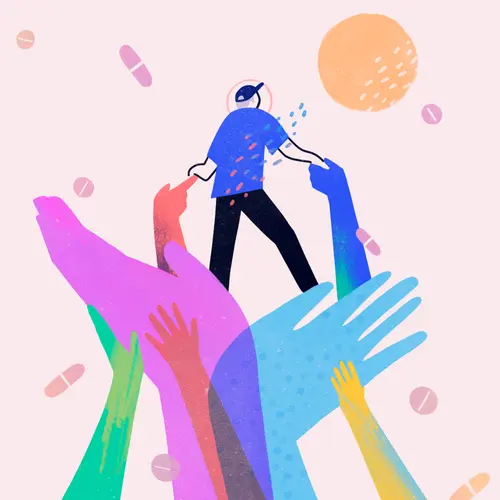Scientists are just starting to learn about a possible link between ADHD and hormones -- specifically sex hormones, such as estrogen and testosterone.
Many experts have suspected there’s a connection. After all, there’s plenty of research on how different levels of estrogen affect mood and behavior for women throughout life. But there isn’t good evidence that hormones are linked to ADHD -- not because they definitely aren’t, but because the topic hasn’t been studied much. However, more research suggests sex hormones may affect pathways in the brain that seem to be abnormal in ADHD.
Scientists say more studies need to be done on the role of sex hormones in ADHD. But here’s what we know so far.
Puberty and ADHD
Puberty is the first time in a young person’s life that sex hormones surge. Boys have a big boost in testosterone, and girls see a rise in estradiol, a type of estrogen.
These changes in hormone levels can have important effects on kids with ADHD. For example, high levels of testosterone can affect brain circuits in a way that causes more symptoms of the condition. Researchers suspect that male sex hormones may be one reason that ADHD is much more common in boys than girls.
Although we don’t yet know the role hormones play in ADHD, we do know that puberty may be different for kids with the disorder than those without it. Parents should be aware that:
- Your child’s peers may start to become less patient with their ADHD behaviors, raising the odds that they could be isolated or bullied.
- Weight gain in puberty could require a change in ADHD medications.
- Changes in the brain could ease ADHD symptoms.
- As bodies change (more hair, body odor, etc.), some kids may need reminders about showering and wearing deodorant.
- Sexual feelings may be confusing and lead to inappropriate behavior.
- Kids may feel more insecure about blending in.
ADHD During Childbearing Years
From 2003 to 2015, the number of privately insured women in the U.S. who filled a prescription for ADHD medication went up:
- 344% among women ages 15-44
- 700% among women ages 25-29
- 560% among women ages 30-34
A lot happens hormonally during a woman’s menstrual cycle. There is a possible connection between ADHD and the changing hormone levels during the cycle. But since we don’t know exactly how sex hormones affect ADHD, treatments aren’t designed to address hormone changes.
If you feel your menstrual cycle affects your ADHD symptoms, tell your doctor. They can help you come up with strategies, besides medication, to manage your condition.
ADHD, Menopause, and Perimenopause
In some cases, major changes in estrogen levels can make depression and other mood disorders more likely -- especially as women move into menopause. Also, perimenopausal and postmenopausal women often have ADHD-like symptoms, including problems with:
- Attention
- Organization
- Short-term memory
Studies are exploring the best ways to treat the symptoms. Hormone therapy, particularly an estrogen patch, may be able to prevent and treat mood disorders. And a small study suggests that the ADHD drug atomoxetine can improve concentration and memory loss among these women, even if they don’t have a history of ADHD.

